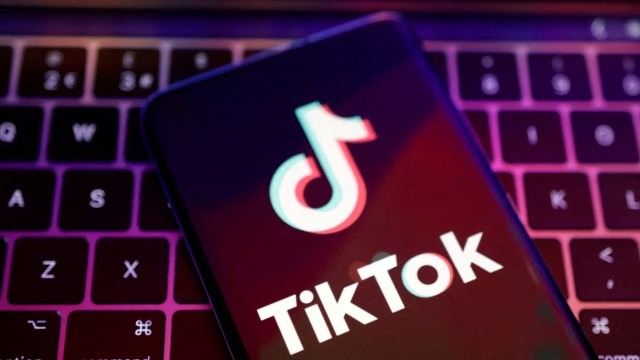EU investigates TikTok for online content, child safety

Video platform faces probe for possible Digital Services Act violations, including age verification
The EU has initiated a formal inquiry into whether TikTok has violated online content regulations, including child protection measures. The European Commission has commenced official proceedings against the Chinese-owned short video platform, examining potential infringements of the Digital Services Act (DSA). The investigation focuses on several aspects, including the safeguarding of minors, the management of advertising content records, and whether TikTok’s algorithms direct users towards harmful content.
Thierry Breton, the EU’s commissioner for internal market, emphasized that child protection is a primary enforcement focus under the DSA. The investigation into child safety on TikTok encompasses age verification, an aspect highlighted by a Guardian investigation last year, and the default privacy settings applied to children’s accounts.
Breton stated, “Given TikTok’s extensive reach among children and teenagers, it is imperative that the platform fully complies with the DSA and takes on a significant role in safeguarding minors online. We are commencing this formal infringement proceeding today to ensure that appropriate measures are implemented to protect the physical and emotional well-being of young Europeans. We must spare no effort in safeguarding our children.”
In April of last year, the Irish data protection authority imposed a €345m (£295m) fine on TikTok for violating EU data regulations regarding the management of children’s accounts. During the same period, the UK’s information commissioner fined TikTok £12.7m for unlawfully processing the data of children under 13, who were below the platform’s minimum age requirement.
Companies found to be in breach of the DSA could face fines of up to 6% of their global revenue. TikTok is owned by the Chinese technology company ByteDance.
TikTok stated its commitment to collaborating with experts and the industry to ensure the safety of young users on its platform. The company expressed eagerness to provide a comprehensive overview of its efforts to the European Commission.
A spokesperson for TikTok highlighted the platform’s innovative features and settings designed to safeguard teenagers and prevent users under the age of 13 from accessing the platform. These are challenges that the entire industry is currently addressing.
The European Commission is also examining potential issues with TikTok’s provision of publicly accessible data to researchers, as well as whether the company has fulfilled requirements to establish a database of advertisements that have been displayed on the platform.
No specific deadline has been set for the investigation. Brussels has indicated that the duration of the inquiry will depend on various factors, including the complexity of the case and the level of cooperation from the company under investigation.
This scrutiny of TikTok represents the second investigation under the Digital Services Act (DSA), following a formal inquiry into Elon Musk’s social media platform X (previously Twitter) in December last year. The investigation into X focuses on issues such as the failure to block illegal content and insufficient measures against disinformation.
Apple is reportedly facing a substantial fine from the EU regarding its conduct in the music streaming app market. The European Commission is investigating whether Apple prevented music streaming services from informing users about more affordable subscription options available outside its app store.
The Financial Times reported that Brussels intends to levy a €500m fine, marking a significant development against Apple following years of complaints from companies offering services through iPhone apps.
The commission refrained from commenting. Apple did not issue a new statement but referred to a previous one indicating the company’s commitment to addressing the commission’s concerns “while fostering competition and providing choice for European consumers.”
Apple has never been fined for competition issues by the European Commission. However, in 2020, France imposed a €1.1bn fine on Apple, later reduced to around €370m after an appeal, for engaging in anti-competitive agreements with two wholesalers.
Nevertheless, Apple, along with other major tech companies, is facing increased scrutiny over competition concerns. Google is currently appealing fines totaling over €8bn imposed by the EU in three separate competition investigations.
Apple successfully defended itself against a lawsuit from Epic Games, the developer of Fortnite, which alleged that the app store constituted an illegal monopoly. In a similar case, Epic Games won against Google in December, as Google operates the Android mobile phone software.
Last month, Apple announced that it would allow EU customers to download apps without using its app store, in response to the bloc’s Digital Markets Act. This legislation imposes new obligations on digital “gatekeepers” such as Amazon, Microsoft, Apple, and Google.


